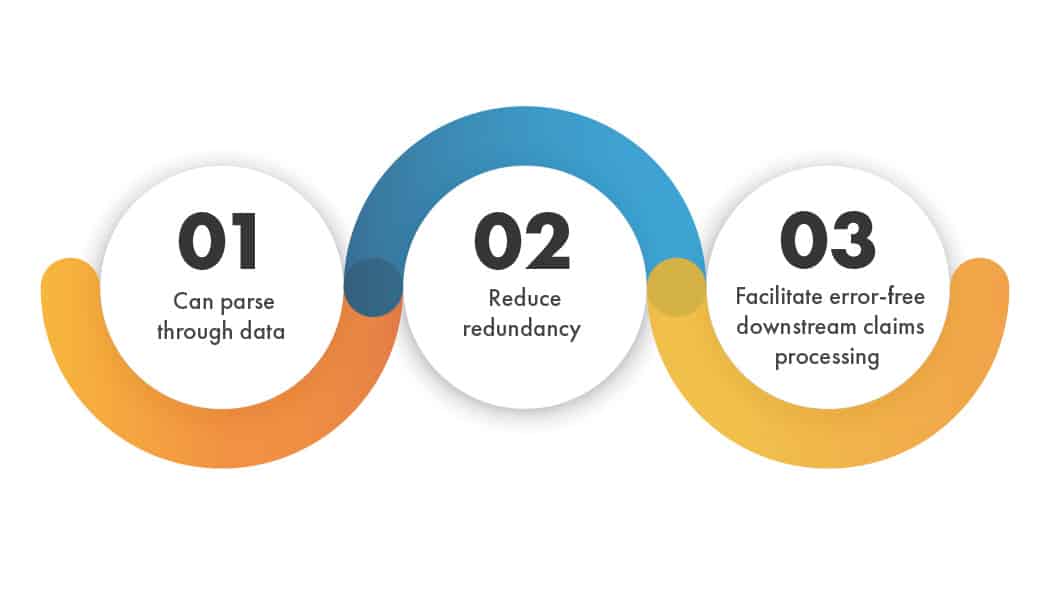Over the past several years, insurance claims have steadily increased in volume, a trend that’s likely to continue. According to the CAQH Index, insurance companies that are still using manual adjudication processes will see their opportunity costs increase as they continue to rely on expensive human labor to sort, file, and process claims.
One of the ways to realize these potential cost savings is to partner with a technology provider that specializes in healthcare and intelligent automation. Adding machine learning and AI to upstream claims workflows improves the insurance adjudication process by reducing the potential for downstream issues that stall throughput.
Drawbacks to Manual Processing
The benefits of manual claims adjudication are few and far between. While it’s necessary for some instances, the majority of this process can be handled through intelligent automation.
Manual adjudication generally ends up with a higher turnaround time, overhead cost, and potential for error. Most of these medical billing errors start upstream with inaccurate or incomplete data and eventually work their way down to the patient, resulting in an appeal. This means the Payer must invest more time and effort in sorting out a problem that could have been avoided in the first place.
This process and the shortcomings of human adjudication beg the question: How can the adjudication process be improved?
How The Adjudication Process Can Be Improved
Intelligent automation can drastically reduce the amount of time and human capital spent dealing with claims, and it can be done without adding a layer of complexity that hampers current workflows.
In one industry study, financial drivers of the initiative included a savings of over five claims analysts for every 1% lift in auto-adjudication and the potential for a $240,000 per year annual savings on interest payments through improved adjudication accuracy and timeliness.
The benefit is particularly noticeable in the upstream section of claims processing. Intelligent automation can parse through data, reduce redundancy, and facilitate error-free downstream claims processing, whether manual or automated. This automation can apply to several key data points on a claim, including Member and Provider matching, while implementing business rules and edits, snip level validation, and Optical Character Recognition (OCR). The result is cleaner, more accurate data, increased efficiency, and ultimately lower costs all while optimizing your systems for auto-adjudication.
For a leader in charge of implementing auto-adjudication, the task can feel overwhelming. Hiring a healthcare technology consultant for technical expertise can make the transition clearer and more successful. In today’s labor market, though, finding staff can be difficult and, when looking for someone specializing in machine learning and artificial intelligence, it could be next to impossible. If you are lucky enough to find them, the salary alone could upend an entire budget, eating into the cost savings realized from intelligent automation.

Improve Auto-Adjudication Rates with Guidance from Smart Data Solutions
Smart Data Solutions (SDS) has over two decades of experience providing implementation strategies and execution tailored to your system’s needs, without overhauling the Core Administration Platform System (CAPS). We’ve helped clients move away from manual adjudication and claims processing allowing them to realize cost savings and efficiency gains that come from intelligent automation.
Reach out to SDS to see how we can improve your claims processing workflows, reduce errors and appeals, and ultimately give more time back to your team. Get in touch and let us help you build a better system today!
